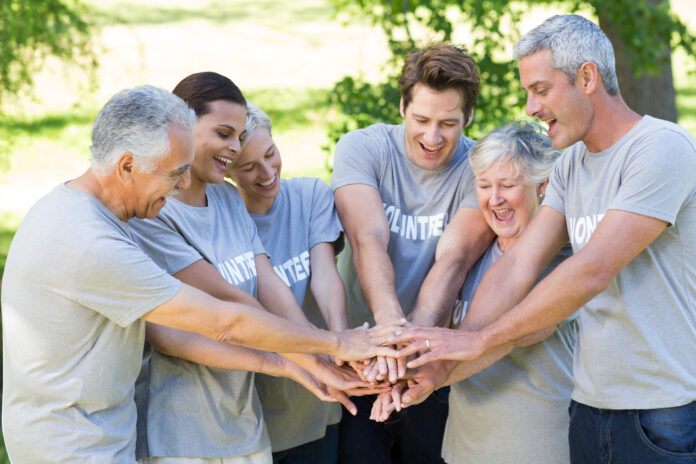Objectives. This study tests the effects of volunteering on the well-being of older adults, including the effect of level of engagement, the moderating effects of demographic and social factors, and the effects of the nature of the volunteer experience.
Methods. This is a secondary data analysis of three waves of data from the Americans’ Changing Lives Study. Self-rated health, functional dependency, and depression are regressed on the well-being measures from the previous waves, other control variables and volunteer status, volunteer hours, type and number of volunteer organizations, and the perceived benefit to others of the volunteer work.
Results. Older adults who volunteer and who engage in more hours of volunteering report higher levels of well-being. This positive effect was not moderated by social integration, race, or gender. There was no effect of the number of organizations for which the older adult volunteered, the type of organization, or the perceived benefit of the work to others.
Discussion. This work contributes to a knowledge base that points to the development of social programs and policies that maximize the engagement of older adults in volunteer roles. The findings suggest that targeting efforts may not be warranted, in that there are not differential benefits according to personal characteristics of the volunteer. Future studies have to address the nature of the social institutions that will maximize the number of elders in these roles and the benefits that they accrue.
Conclusions
In sum, this work contributes to a knowledge base that points to the development of social programs and social policies that maximize the engagement of older adults in volunteer roles. It supports the perspective that volunteering is important in the larger context of successful aging. We need more empirical work to address the nature of social institutions that will maximize the number of elders in these roles and the benefits that elders accrue from occupying these roles. Further work could also address the multiple benefits that derive from these activities—benefits that extend beyond the older volunteer to the individuals, families, and communities served by the volunteer programs. As Butler (1997) argued, we should transform retirement by work-life extensions and by expanding volunteer roles, for the benefit of society as well as the individual.
ANALYSIS:
Through this research, it is obvious that older adults who spent time volunteering saw improvement in their overall well-being. The positive impacts of socially giving shouldn’t be ignored in older adults and there is an opportunity here. Volunteering does seem to be heavily dependent on one’s own ability, but are there opportunities for those who are not as physically capable to contribute as well? I think it would be interesting to explore who one with disabilities could still yield from the benefits of volunteer work if modifications could be made to accommodate their needs.
Morrow-Howell, Nancy, et al. “Effects of Volunteering on the Well-Being of Older Adults.” OUP Academic, Oxford University Press, 1 May 2003, https://academic.oup.com/psychsocgerontology/article/58/3/S137/583366.




